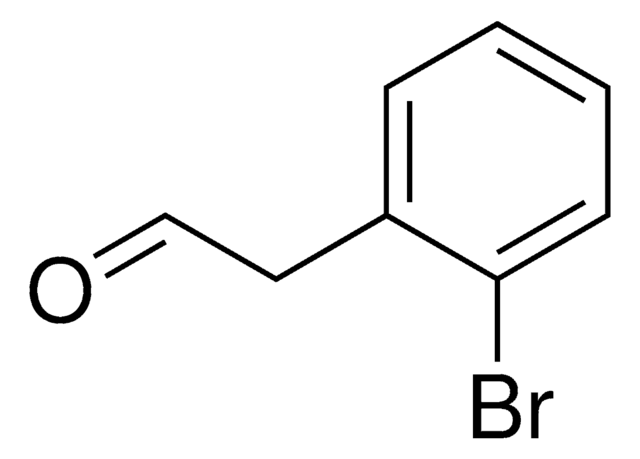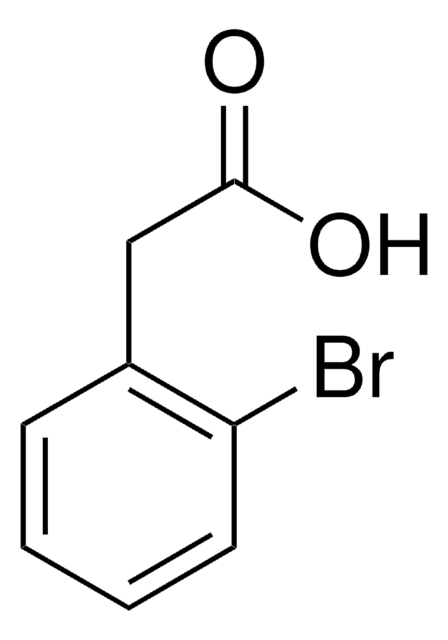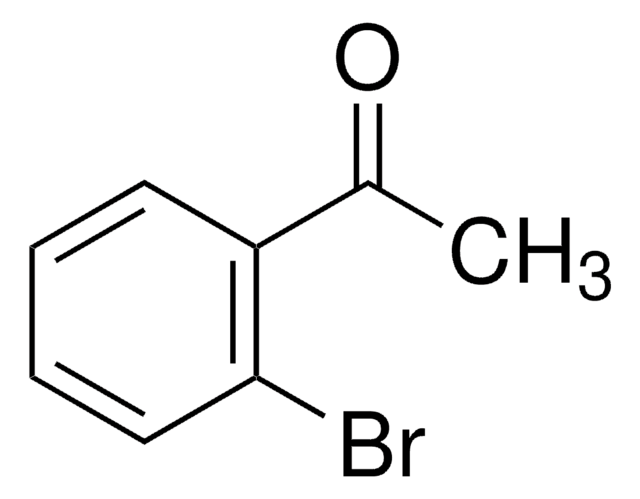394548
2-Bromophenethyl alcohol
99%
About This Item
Produits recommandés
Pureté
99%
Indice de réfraction
n20/D 1.577 (lit.)
Point d'ébullition
97 °C/0.7 mmHg (lit.)
Densité
1.483 g/mL at 25 °C (lit.)
Chaîne SMILES
OCCc1ccccc1Br
InChI
1S/C8H9BrO/c9-8-4-2-1-3-7(8)5-6-10/h1-4,10H,5-6H2
Clé InChI
ADLOWZRDUHSVRU-UHFFFAOYSA-N
Catégories apparentées
Description générale
Application
Code de la classe de stockage
10 - Combustible liquids
Classe de danger pour l'eau (WGK)
WGK 3
Point d'éclair (°F)
Not applicable
Point d'éclair (°C)
Not applicable
Équipement de protection individuelle
Eyeshields, Gloves
Certificats d'analyse (COA)
Recherchez un Certificats d'analyse (COA) en saisissant le numéro de lot du produit. Les numéros de lot figurent sur l'étiquette du produit après les mots "Lot" ou "Batch".
Déjà en possession de ce produit ?
Retrouvez la documentation relative aux produits que vous avez récemment achetés dans la Bibliothèque de documents.
Les clients ont également consulté
Notre équipe de scientifiques dispose d'une expérience dans tous les secteurs de la recherche, notamment en sciences de la vie, science des matériaux, synthèse chimique, chromatographie, analyse et dans de nombreux autres domaines..
Contacter notre Service technique











